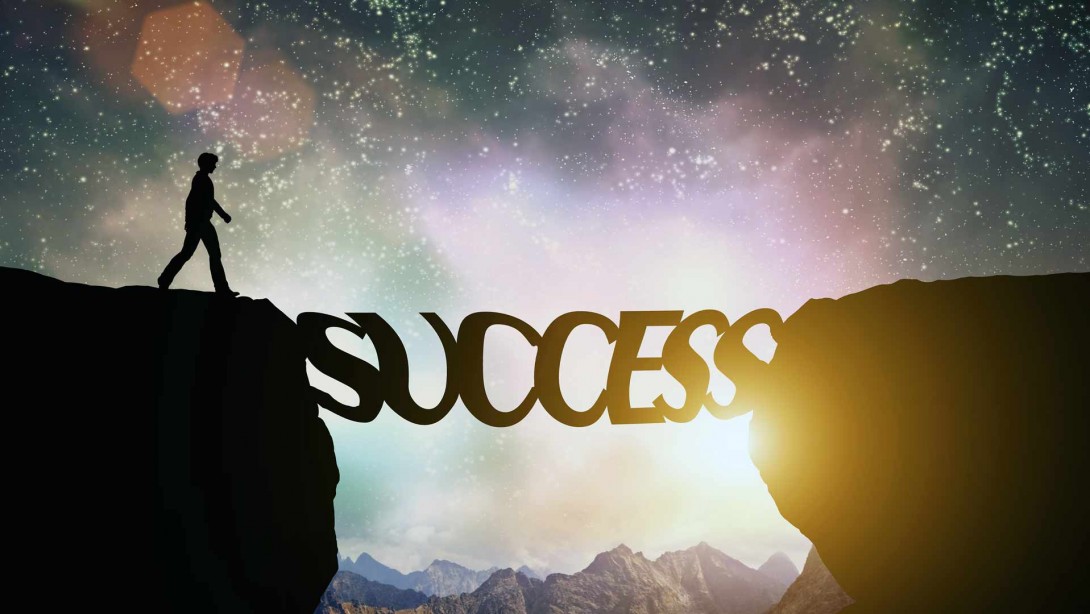Even as a kid, I always dreamed big. When I was in the fifth grade, for example, my life’s goal was to find the cure for AIDS to save Magic Johnson. My vision of success, however, has morphed over the years, from being famous or making millions to having a meaningful impact on the lives of others. To me, the mom raising quality human beings is just as successful as the CEO of a large nonprofit. It’s all about making a difference—that feeling in your heart that you get when you help someone is bar none the most successful feeling I will ever have. I’m hopeful that I can string together lots of these transformative moments over the course of my lifetime in order to lead a happy, healthy, worthwhile journey.
I didn’t always think this way, though. I used to be out for money, power, and prestige. As a result, nothing was ever enough. I was always right around the corner from happiness, just two stops away from satisfied. Success, in my mind, was an elusive moment in time that never seemed to arrive. Even today, I don’t think I will ever stop striving for more. But “more” used to mean something very different to me. “More” used to look like a $1 million salary, an impressive job title, designer clothes, all the latest tech, the perfect man, the works. It used to mean “more than you have.” I wanted to be the best; there was simply no place for losers. I was going to win at life.
All went well for quite some time. I attended Barnard College for undergrad and NYU Stern School of Business for my MBA. I found myself working at one of the most prestigious firms on Wall Street. People would have killed to be in my position, and yet…I never felt fulfilled. I always came just short of having a great year. I wanted everything to be perfect, and it wasn’t.
Then one day, the stress got to be too much for me. I descended into my first manic episode and had to be hospitalized. I had cracked; failure appeared to be my only option. Hunter S. Thompson once wrote, “there is no honest way to explain [the edge] because the only people who really know where it is are the ones who have gone over.” And he’s right—losing my mind to bipolar mania and psychosis meant losing my job, my friends, my sense of security, and most importantly, my sense of self. My identity as a successful 12-year Wall Street veteran was swapped for that of a mental patient relegated to her hospital bed. I had never felt so low. It took me a good two years to beat the psychosis, anxiety, and depression. I still struggle with being completely functional, but most of my days are good ones.
Everything changed after I had my breakdown. I felt like I would never again come close to knowing what success fees like. Though I had not been entirely happy in my previous life, I found myself longing for those days on Wall Street, haunted by thoughts of how good I had had it. I felt as though I was now doomed to lead an ordinary existence—something completely unacceptable to such an extraordinary person as myself. But as I regained my strength, the lights turned back on in my brain. I started to let in the sunshine in and dream again.
During my recovery, I needed to believe that all the pain that I had gone through could not have been in vain. I believed that what I had experienced made me uniquely equipped to help the people I relate to most—the dually diagnosed. The dually diagnosed, or “double winners” as I like to call them, are people with both mental illness and substance use disorder. Their struggle to stay sane is doubly difficult. I feel that building a business around helping this overlooked group of individuals is what I am meant to do.
So ask yourself: What does success mean to you? Are you defining it in a healthy and realistic way, or are you imposing an impossible standard on yourself? For me, success has evolved from dangerous obsession into making a difference—in one person’s life or the lives of many. My goal is now strategic, measured, and achievable. It is no longer a faraway dream, but my living mantra. I am already there. Won’t you come join me?


